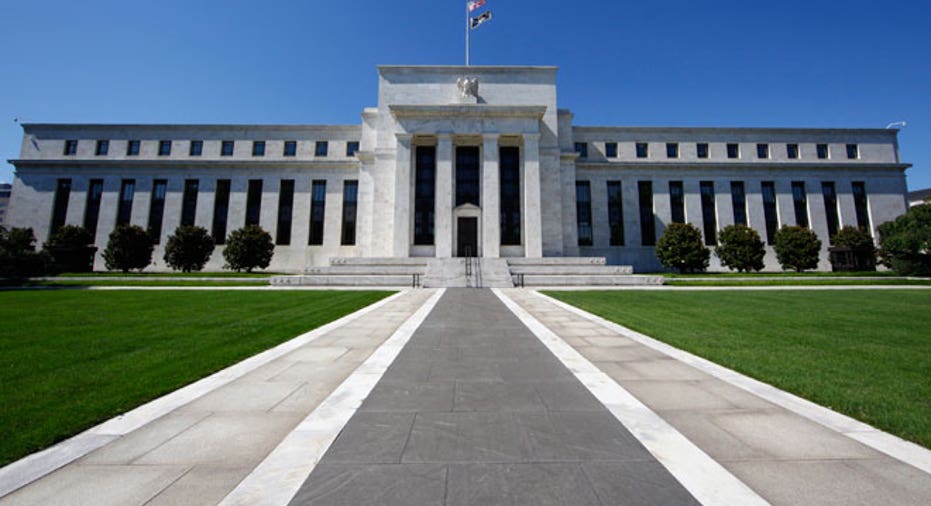Growing Sentiment Says Raising Interest Rates Could Benefit Economy

For four years now runaway inflation has been the primary concern tied to the Federal Reserve's unprecedented activist policies initiated to stimulate the U.S. economy by keeping interest rates at historically low levels. All that easy money would eventually push prices through the ceiling, or so the thought went.
But that hasn't happened. Inflation has remained well below the 2% target set by the Fed earlier this year.
Now another argument against the Fed's strategy of long-term low interest rates is gaining momentum, and it may strike closer to home with many Americans struggling to make ends meet month-to-month. There is growing sentiment that it may be in the best interest of the economy to start raising rates sooner rather than later, a sentiment apparently in direct contrast to Fed's strategy.
Wednesday's announcement that the Fed will start purchasing $45 billion in Treasury notes each month beginning in January in addition to the $40 billion in mortgage-backed securities the central bank started buying in September, all in an effort to maintain low interest rates, is sure to strengthen the argument among many economists in favor of raising rates.
The argument holds that interest rates held at a range of 0% and 0.25% for over four years -- and with no end in sight -- combined with open-ended asset buying programs designed specifically to push long-term rates such as mortgages lower are beginning to take their toll on the broader economy by shrinking household incomes such that consumers are being forced to cut back on spending.
Since consumer spending accounts for 70% of the U.S. economy, the potential impact is clear.
David Kelly, chief global strategist at J.P. Morgan Funds, articulated the case for this argument in a note earlier this week. Kelly noted that many U.S. households hold more interest-bearing assets such as savings accounts, money market funds and certificates of deposit than interest-paying liabilities such as mortgages. The Fed's policies that have kept and continue to keep interest rates low hurt those households because those interest-bearing accounts are basically sitting stagnant, earning very little money.
Meanwhile, many of those same households hold fixed-rate mortgages, which aren't impacted by shifting Fed policies unless the borrower decides to refinance.
Fed Policies 'Undermining Confidence'
Kelly suggested these households would stand to benefit if the Fed started gradually raising interest rates. Higher interest rates would potentially increase their household income, allowing them to spend more, which would ultimately drive up demand for goods, generate jobs and lead to economic growth.
On a macro level, Kelly said the Fed's insistence on maintaining low rates and the central bankers' vocal assurances to keep rates low for the foreseeable future (or at least until unemployment hits 6.5% per another Fed policy introduced Wednesday) has taken away any incentive for bankers to make long-term loans.
Ironically, the Fed's monetary policies "may well be undermining the confidence the Federal Reserve is trying to inspire," according to Kelly.
Greg McBride, senior financial analyst for Bankrate.com, agrees that raising interest rates would produce a greater cash windfall for many American households. But probably not enough households to lift the broader economy.
In theory, at least, "if you tallied up the grand total of what every U.S. household has in assets and liabilities, you'd get a bigger kick to the economy by raising interest rates than by keeping them low," McBride said.
The problem is that most Americans have very little savings and a whole lot of debt.
"Millions of American consumers are short on savings but long on debt," McBride said. "So for a whole lot of people it's actually more beneficial to reduce borrowing rates rather than savings returns. The typical American household has a lot of debt and not a lot of savings."
The pockets of households who would stand to benefit the most from rising interest rates are retirees who have paid off their mortgages and most other debts and wealthy households which always tend to hold more assets than liabilities.
In any case, Fed Chairman Ben Bernanke set this activist, low interest rate course at the beginning of the financial crisis in late 2008 and it's highly unlikely he's going to swerve from it now.
Bernanke "is far more scared of taking his foot off the pedal to the metal too long," said Peter Tchir, founder of TF Market Advisors in Connecticut.
"Ben would would much rather his legacy be remembered as 'Ben the inflation creator' than 'Ben the depression creator' who didn't follow his own advice."



















